Search
Search Results
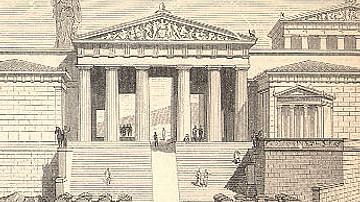
Image
Athenian Propylaea Reconstruction
An illustration of the Propylaea or monumental gateway of the Athenian acropolis, 5th century BCE.
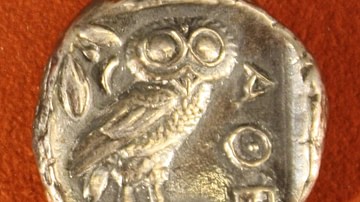
Image
Athenian Silver Tetradrachm
Athenian silver tetradrachm, depicting Athena on the obverse and an owl with an olive branch on the reverse, 479-454 BCE.
Alpha Bank Numismatics Collection, Kerkyra, Corfu.
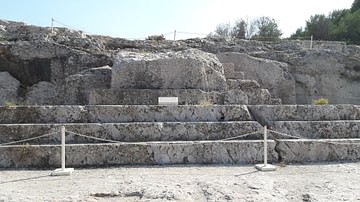
Image
Speaker's Platform at the Athenian Assembly
Stone cut steps leading up to the speaker's platform at the Athenian Assembly on Pynx
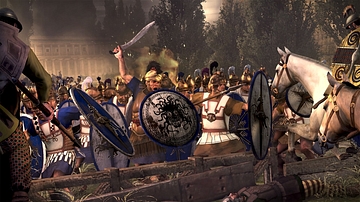
Image
Athenian Hoplites
A 3D representation of Athenian hoplites in battle. The Gorgon device on the central figure's shield was a typical feature of Greek shield design. In Greek mythology the stare of the Gorgon Medusa was said to turn people to stone.
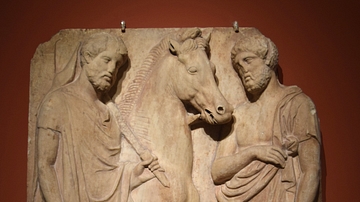
Image
Athenian Horseman Grave Stele
The marble grave stele of an Athenian horseman. Attica, 370s BCE. (Pushkin Museum, Moscow)
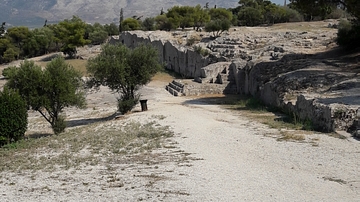
Image
The Athenian Assembly
Remains of the Athenian Assembly on the Pynx

Image
Athenian Agora and Acropolis
Artist's impression of a view across the Agora on an early summer evening, looking southeast towards the Acropolis. Trees and plants had been planted in the Agora from the time of Cimon in the mid fifth century BC. Left of centre is the Altar...
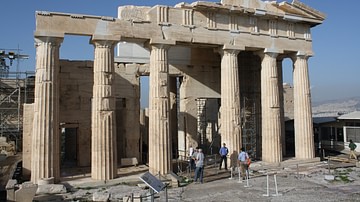
Image
Propylaea, Athenian Acropolis
The Propylaea, the monumental gate to the acropolis of Athens. Interior (west) view. Architect: Mnesicles, c. 437–431 BCE.
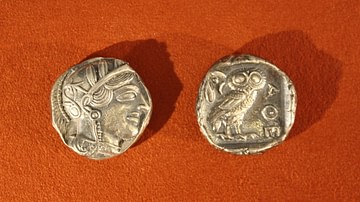
Image
Athenian Silver Tetradrachm
Silver tetradrachm from Athens, 479-454 BCE. O: Head of Athena. R: Owl and olive branch.

Definition
The Pentecontaetia
The Pentecontaetia (Pentekontætia, πεντηκονταετία) or “the account of the fifty years” is a term first used by Thucydides to describe, in Book 1, Sections 89 to 117 (1.89-117) of his History of the Peloponnesian War, the period between the...